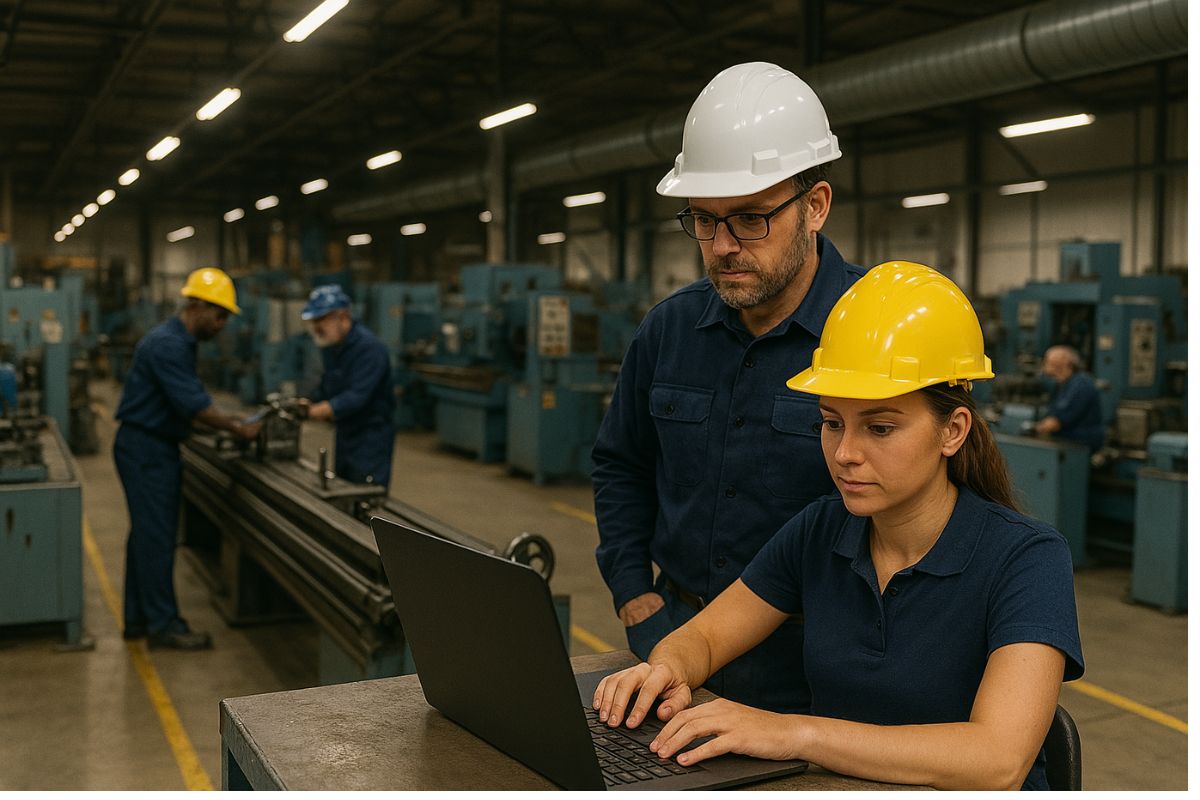2021 brought new challenges to the manufacturing industry, accelerating significant disruptions; decarbonization, servitization, and digitalization forced organizations to adapt at a rapid pace while having, to tackle unpredictable demand surges, raw material shortages, and delayed supply chains.
This increasingly competitive landscape will push manufacturing leaders to adopt Industry 4.0 strategies that address workplace safety, worker productivity, and bridge gaps in communication.
Investing in data-driven tools
In 2022, digital is no longer optional. Many manufacturing companies are investing in digital solutions that support real-time visibility for decision making, workforce engagement, and continuous improvement.
‘Manufacturers are likely to be proactive and address future issues by collecting data for greater transparency and insight into operations.’
Addressing the generational skills gap
Today, one of the biggest challenges for manufacturers is attracting and retaining new talent, especially among generations like Millennials and Gen-Z. For the years to come, they have to make an effort to address this skills gap and labour shortage; and this can be done by using Industry 4.0 technologies.
For example, by adopting the use of mobile Connected Worker applications, manufacturers can ensure that employee feedback is heard and acted upon, turning real-time feedback from workers into action. As a result, they can create a safer, more engaging work environment and increase overall efficiency and profitability.
Adopting mobile solutions
More than 96% of younger workers already have smartphones, so mobile Connected Worker applications, are a seamless way to engage them. Since Millennials and Gen-Z are familiar with mobile devices, they are expected to use digital technologies in the workplace.
‘The right digital tools lead to increased engagement, and the ability to capture critical data and best practices. By allowing companies to unlock data and find out what’s happening on the factory floor in real-time, leaders can identify patterns and trends and act quickly on the information.’
According to IDC, by 2022
- 70% of all organizations will have accelerated the use of digital technologies, and mobile Connected Worker applications will transform existing business processes
- Companies who leverage mobile Connected Worker applications will be more resilient to future challenges and ‘will accelerate digital transformation by proactively addressing real-time findings in safety, quality, and operations for determining overall trends and evaluating process efficacy’






